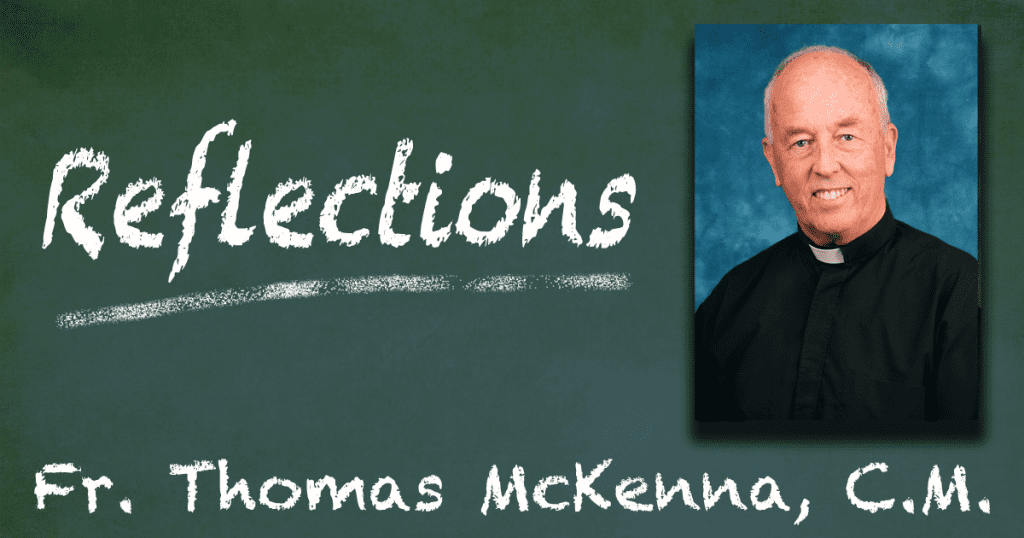
“Not Just Interesting, But Moving” (Exodus 3; Psalm 103)
There’s a difference between things that are interesting and things that are intriguing, between things which make us curious and things which actually move us. I can pick up a score of a symphony and be interested in how all the notes are arranged on the page, but it’s only when the music is played by an orchestra that the music moves something inside me. I can be curious about what goes into the process of one person’s forgiving another and maybe can even analyze the process, but I’m absolutely intrigued when I see someone actually doing the forgiving. The first interests me; the second fascinates me.
The difference between the two gets at something right at the core of our Christian faith. How is it that we travel from “Isn’t this ritual here in Church interesting?” over to “Isn’t what we do here in the Eucharist fascinating?” Or go from “I hear the words of Scripture” over to “I’m moved by these words.” To connect it more directly to these readings, how is it that we let phrases like “I Am your God,” and “The Lord is merciful and gracious and abounding in kindness” move from pleasing phrases into convictions that anchor themselves deeply within us and pull us forward, not just interrogating us but attracting and grabbing us?
Though there are many responses to this question (e.g., the Lenten practices of prayer, fasting and almsgiving), one that shows up in most everyone’s life is the connection they’ve been able to make between the sacred “words” and something they’ve experienced; i.e., the times when they’ve actually caught sight of these biblical episodes at work in the flesh and blood of everyday life.
I recently came across an essay about the spirituality of Hospice workers, those care-givers who come in to help a dying person and the family when the end is near. It focused in on how it is that a skilled and loving Hospice visitor puts flesh on words very similar to the ones in our readings (“I am your God” [Ex. 3] and “The Lord is abounding in mercy and grace and kindness.” [Ps 103])
Their backdrop is the scene in Exodus where an astounded Moses comes upon the burning bush and is told by Yahweh to take off his shoes because he is “standing on holy ground.” Why is this particular piece of ground holy? Because that’s the spot on which God, after having seen and felt the affliction of His People, comes down to be with them, to rescue them, and see them through to the end. You might say this the very space and time location in which God is hovering over the suffering ones, being with them and not letting them stand alone. It is the spot at which Yahweh is pouring his loving Spirit into His people, strengthening them and raising their hopes for something better.
The article then paints a word picture of a woman hospice worker bending over a dying man. Not just giving him the right medicine, she is also “entering into a relationship with him, in such a way that he comes to feel respected and comforted…because, in spite of the pain and disfigurement, he is a person of worth, beauty and strength.” (Abounding in Kindness, Elizabeth Johnson, p. 151).
This visitor is channeling God’s own care of His afflicted people. In the process, she is changing these words about God’s compassion from interesting ones to moving ones. In her actions and attitude an onlooker can now see and feel and taste the biblical words, “I am your God, here for you. I am the Lord who is abounding in mercy and grace and kindness.” And for the Hospice worker at times when her task seems overwhelming, these same words sound through. Like Moses, she too receives the promise from her ever faithful God, “I will be with you.”
It’s a contemporary playing-out of this story of holy ground. As she bends over the pain and distress at this most critical moment in a human life, the caregiver is making God’s compassion come alive in the here and now. And were we to stand alongside her in that bedroom, we might well be able to experience how it is that sacred words like these get changed from interesting to intriguing. Being in any such holy spot or situation, we’d be better able to sense the difference between being at this Eucharist this morning and being in it, between clinically watching it from a distance and having it take us into the sacrificing and dying and rising of Jesus that’s happening all around us and within us.
The opening question: how might these words we hear here and these actions we perform get transformed from interesting things to attracting things, get transmuted into stories and rituals that not only pique our curiosity but move us along the path of discipleship?
One answer is that we look for them in the rest of life. This is what happened to that other person in the room who was able to catch the resonance between the bending, hovering care of the Hospice worker and the power of our scriptural words today, “I am Your God. I’ve heard your cry of complaint. I have come to rescue you. Merciful and gracious is the Lord. For as the heavens are high above the earth, so surpassing is His kindness…”
These words and actions start to fascinate and move us when we come upon instances of them around us and in us in everyday life. And as Jesus would say, “to those who have eyes and ears, let them see and let them hear.”







0 Comments